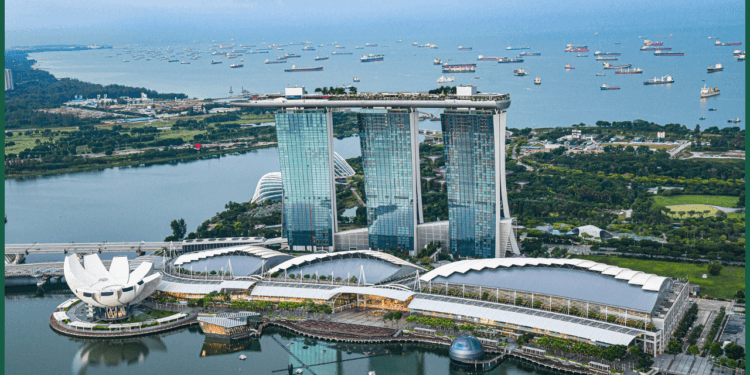Singaporean authorities have arrested two teenagers under the Internal Security Act (ISA) for plotting separate extremist activities, raising fresh alarms about youth radicalization. The cases, announced on Wednesday, involve a 17-year-old boy with far-right leanings who aimed to massacre Muslims in mosques and a 15-year-old girl intent on joining Daesh fighters in Syria.
The 17-year-old, detained in March, identified as an “East Asian supremacist” driven by a violent ideology. Inspired by the 2019 Christchurch mosque shootings that claimed 51 lives, he allegedly planned a mass shooting targeting Singapore’s Muslim community, with a goal of killing at least 100 people. Investigations revealed he sought firearms from the United States, Malaysia, and Thailand but failed to obtain them. His radicalization came to light during a probe linked to an 18-year-old arrested in December for similar far-right extremism. Under the ISA, the teen faces detention without trial for up to two years.
In a separate case, a 15-year-old girl received a restriction order in February after authorities uncovered her plans to travel to Syria. She intended to either fight alongside Daesh militants or marry one and build a family to support the group’s cause. Her radicalization, alarmingly swift, took just weeks, according to the Internal Security Department (ISD). Restriction orders under the ISA can limit travel, communication, and internet use.
Singapore, a multi-ethnic society with a population of 5.7 million—74% Chinese, 13.6% Malay, 9% Indian, and 3.3% other—has grappled with extremist threats for years. Since 2015, 17 individuals aged 20 or younger have faced ISA action, with nine plotting attacks on local soil. The ISD emphasized the speed of self-radicalization, urging the public to watch for behavioral shifts in those around them.
“These cases highlight how vulnerable youth can be to extremist ideologies,” an ISD spokesperson said. “Vigilance is key to stopping this trend.” Singapore has bolstered its defenses with public awareness drives and rehabilitation efforts for detainees, aiming to curb radicalization in a nation proud of its racial harmony.
The arrests underscore the city-state’s zero-tolerance stance on security threats, enabled by the ISA’s controversial powers of detention without trial. As authorities continue to monitor extremist currents, the focus remains on protecting a diverse society from the perils of hate and violence.

















































